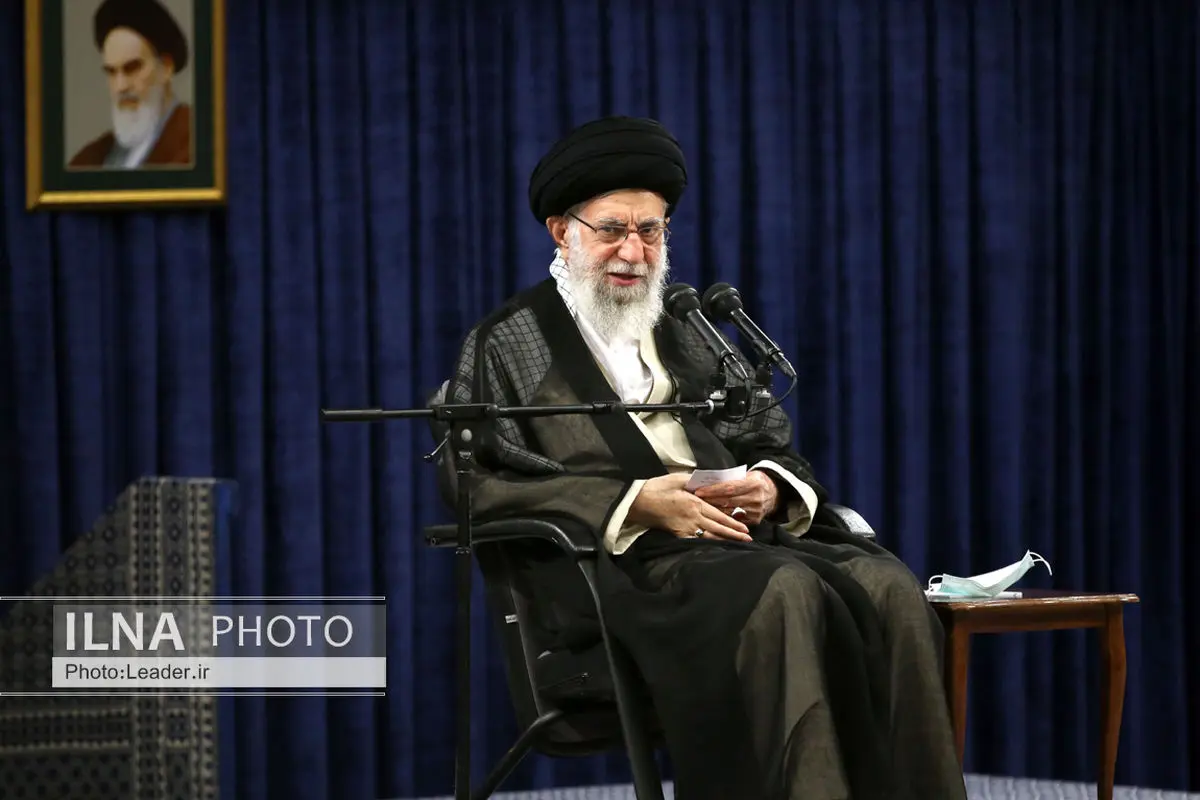Supreme leader: West not worthy of talking about human rights

Supreme Leader of Iran’s Islamic Revolution Ayatollah Seyyed Ali Khamenei has criticized Western states for their disrespect for human rights, describing them as “enemies of humankind”.
The leader made the comment in a meeting with a group of Iranian poets and Persian literature academics in Tehran on Wednesday.
Here is the full text of Ayatollah Khamenei’s remarks, which were published on his official website: Khamenei.ir
On the eve of the auspicious birth anniversary of Imam Hasan (pbuh), a group of poets and experts in Persian literature met with the Leader of the Islamic Revolution in the Imam Khomeini Hussainiyah, on April 5, 2023.
During the meeting, Ayatollah Khamenei expressed his satisfaction with the expansion of poetry in Iran, labeling it as an influential, lasting medium. Referring to the universality and irreplaceable importance of poetry in different periods throughout the history of the Islamic world, the Leader stated, “One of the distinguished features of Persian poetry is the production of epistemic and spiritual capital, which is crystallized in the peaks of Persian poetry and the wise and enlightening poems of prominent poets such as Ferdowsi, Nizami, Rumi, Saadi and Hafez.”
Ayatollah Khamenei pointed out that the capital and essence of Persian poetry has always been preserved even in the most difficult conditions of Iran's history, such as during the period where the country was invaded by the Mongols.
“Of course, today’s Mongols, that is, the West, have different appearances and forms of the onslaught. In addition to the dark history of their crimes during the colonial period, they have also been invasive during our era, by equipping rabid dogs like Saddam with all kinds of weapons, especially chemical weapons, to attack Iran, or by means of sanctions after that,” the Leader said.
The Leader of the Islamic Revolution further described the pharmaceutical sanctions and the prevention of delivery of vaccines under various pretexts as other examples of the West’s attacks against Iran. “If they could do something to deprive Islamic Iran and its people of food, they would not hesitate to do so,” he added.
Ayatollah Khamenei considered the media onslaught as another part of the diverse attack of ill-wishers against Iran, outlining the fact that they use thousands of forms of media to promote lies, rumors and unconventionalities. "The enemy's goal from this attack is to deprive intellectual and educational strengths and to weaken the spirit of independence, national perseverance, Islamic unity and practice, the Leader argued.
He regarded the weakening of faith and religiosity of women as another one of the targets aimed against Iran and pointed out the effective role that women played in the victory of the Islamic Revolution and the stages after it.
"Westerners have no pity for Iranian women nor do they have any respect for their rights. Rather, they have a grudge against Iranian women and falsely present themselves as supporters of freedom and women's rights," the Leader said.
The Leader of the Islamic Revolution underlined that the West isn’t worthy of being the ones to talk about human rights at all. They are the enemies of humankind! "We saw their human rights in the DAESH, when they burned people alive or sunk them in water and drowned them before everyone’s eyes. We saw [their human rights] in their support of the MEK terrorists and in their support of Saddam Hussein.and their crimes against Gaza and the Palestinians."
Ayatollah Khamenei argued that the West's support for the assassination and killing of religious youth in the streets of Tehran is another example of the falsity of their claim of supporting human rights.
"Our most virtuous youths, such as Arman Aliverdi and Ruhollah Ajamian were killed by torture and via Western media incitement and training," he added.
Ayatollah Khamenei emphasized the need to recognize the enemy as well as their goals, strategies and targets. “Understanding the dimensions of the enemy’s soft war is a requirement for everyone, but it is most essential for those who are active in the cultural and artistic fields so that they can prevent themselves from getting influenced by it, and to make others aware of the enemy’s onslaught,” the Leader said.
